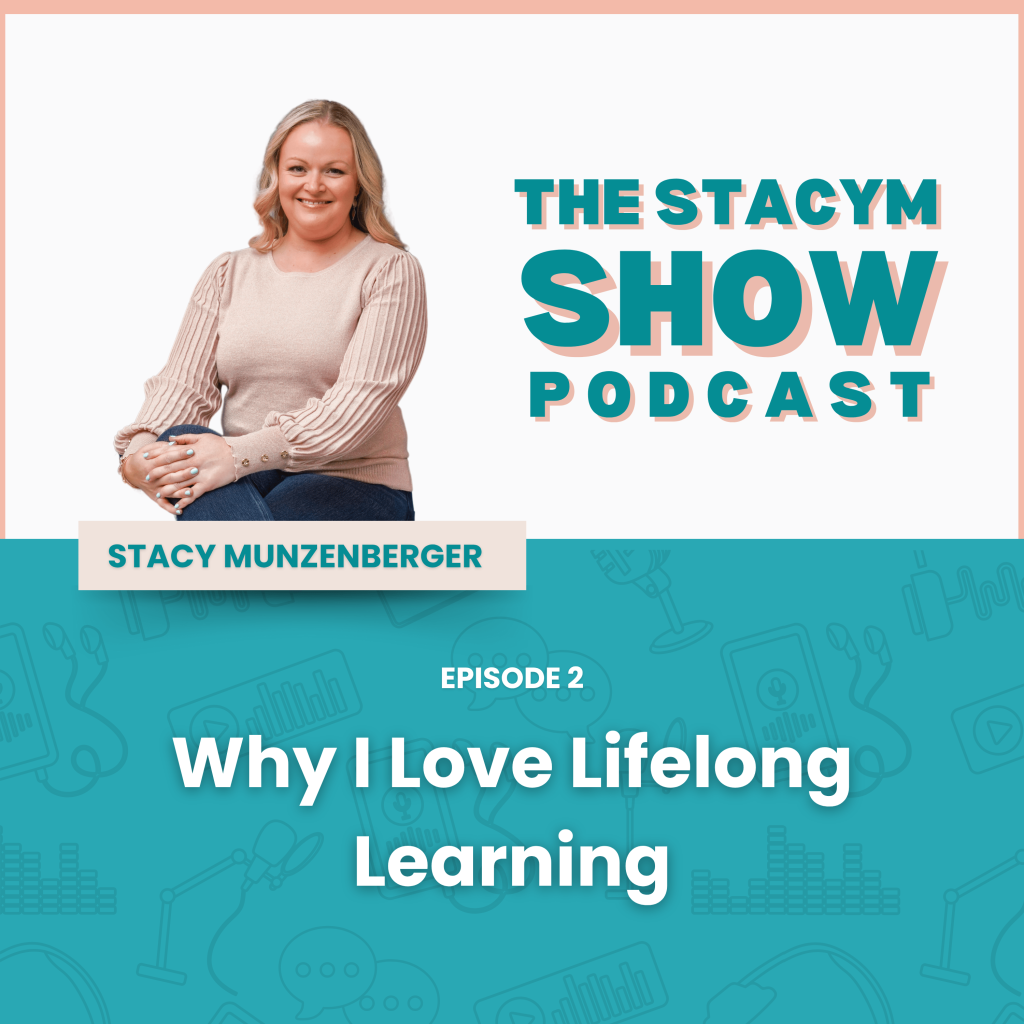The Surprising Way to Feel More Prepared for Life’s Curveballs
Why I Love Lifelong Learning — And Why It Matters in Law
If you’ve listened to Episode 2 of The StacyM Show, you’ll know that lifelong learning has become a big part of who I am — and not just in a “read a new book every now and then” kind of way.
It wasn’t something I grew up with. In fact, I originally studied law because I was told I was “too dumb” to do it. Fourteen years later, I still love my work as a lawyer — but somewhere along the way, I realised being a great lawyer wasn’t enough.
When Law Meets Real Life
Long before COVID, I had clients who were struggling with serious mental health issues, addiction, and, sadly, suicide. As a lawyer, you can’t just ignore those realities. There’s no neat “start and end” to duty of care when a client’s wellbeing is at stake.
I’ve had clients email me daily just to let me know they were still alive. I’ve sat with the gut-wrenching knowledge that someone I’d worked with had taken their own life. And while I can give clients the contact details for Lifeline or Beyond Blue, it doesn’t guarantee they’ll reach out.
That’s when I knew I needed more tools — not to become a therapist, but to better understand and support the human beings sitting across from me.
The Turning Point: COVID
Like many people, COVID was a turning point. We were locked in our homes, teaching our kids, told when we could go out. Mental health concerns soared. I wanted to find something that could complement my legal skills — and that’s when my passion for lifelong learning truly took off.
Since then, I’ve studied under Marisa Peer and qualified as a hypnotherapist and RTT® therapist (soon to be a clinical therapist). I’ve trained as a collaborative coach and collaborative lawyer, learning how to work as part of a team — with counsellors, financial planners, psychologists, and accountants — to help families avoid the stress and cost of court.
I’ve also become a mindfulness instructor so I can offer clients simple tools to calm their minds, even in the middle of legal chaos.
Why It Matters
The skills I’ve learned aren’t just “extras.” They’ve helped me understand why people make the choices they do — like going back to an unhealthy relationship or repeating past patterns — and how to support them in breaking those cycles.
And it’s not just family law. I use these skills when helping clients through contested estates, where emotions run high, or during estate planning, where fear and anxiety often cause delays.
For me, it’s about going above and beyond what a standard lawyer might do — not just to get the legal job done, but to genuinely help clients navigate the human side of their legal challenges.
The Benefits Go Both Ways
Lifelong learning hasn’t only helped my clients — it’s changed me, too.
- Personal growth: Many of the techniques I’ve learned, I use on myself.
- Curiosity: I’m fascinated by why people do what they do, which makes me a better listener and advisor.
- Opportunities: The people I’ve met through my studies — from psychologists to financial advisors — have become friends, colleagues, and trusted referral partners.
I can’t imagine my life or my clients’ journeys without the network I’ve built through learning.
A Sense of Purpose
At the heart of it, lifelong learning gives me purpose. It reassures me that I’m doing everything I can — for my clients, my colleagues, my friends, and my family. Sometimes I take on too much (my immune system occasionally tells me to slow down), but I wouldn’t change it. Next up: my clinical therapy qualification. And I’m sure that won’t be the last course I do.
If there’s something you’ve always wanted to learn — whether for your career, your family, or just yourself — don’t wait. You’re never too old to start. After all, knowledge isn’t just power. It’s connection, understanding, and the ability to make a difference.
If you’d like to hear the full conversation, you can listen to Episode 2 of The StacyM Show.

